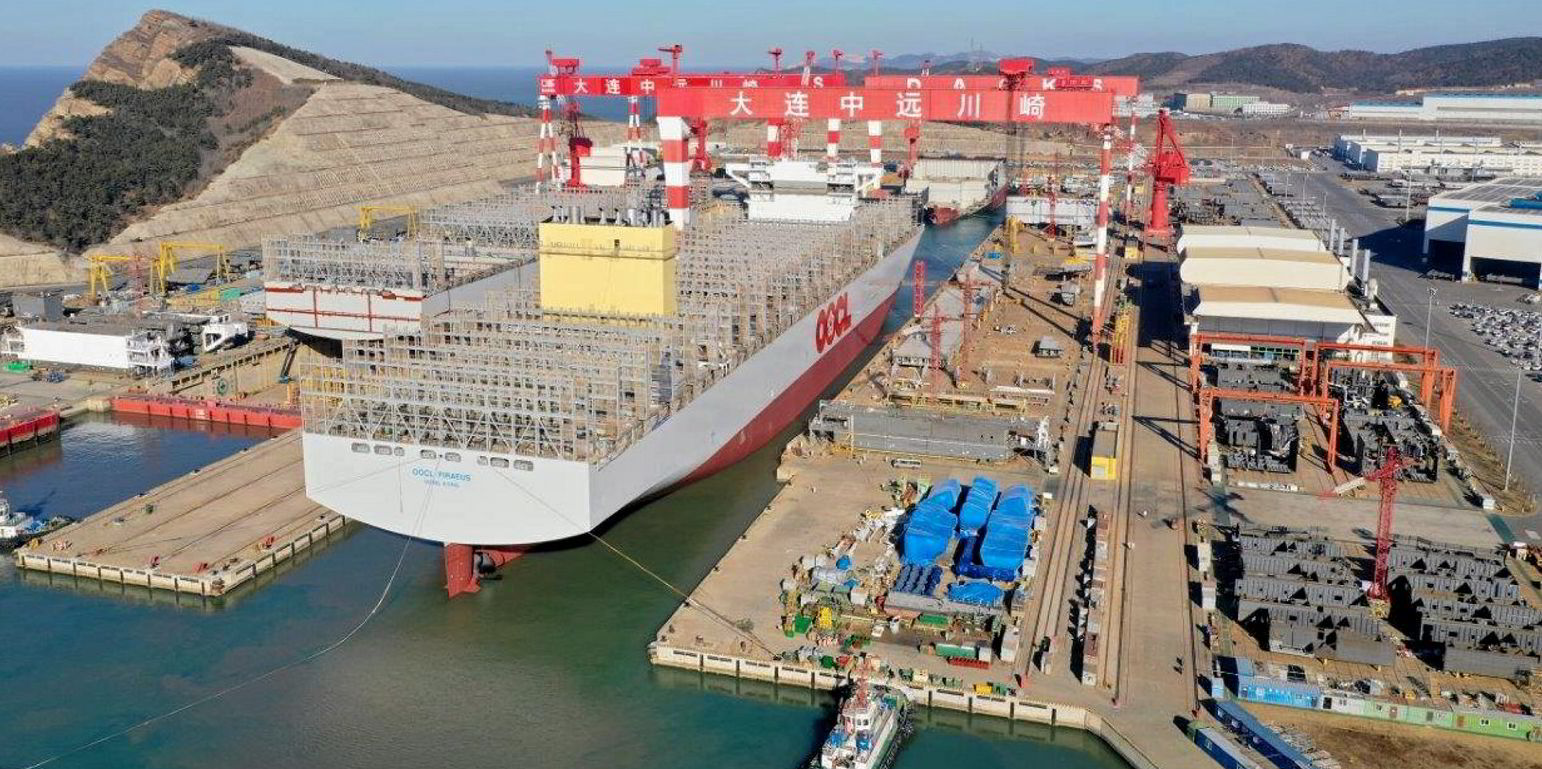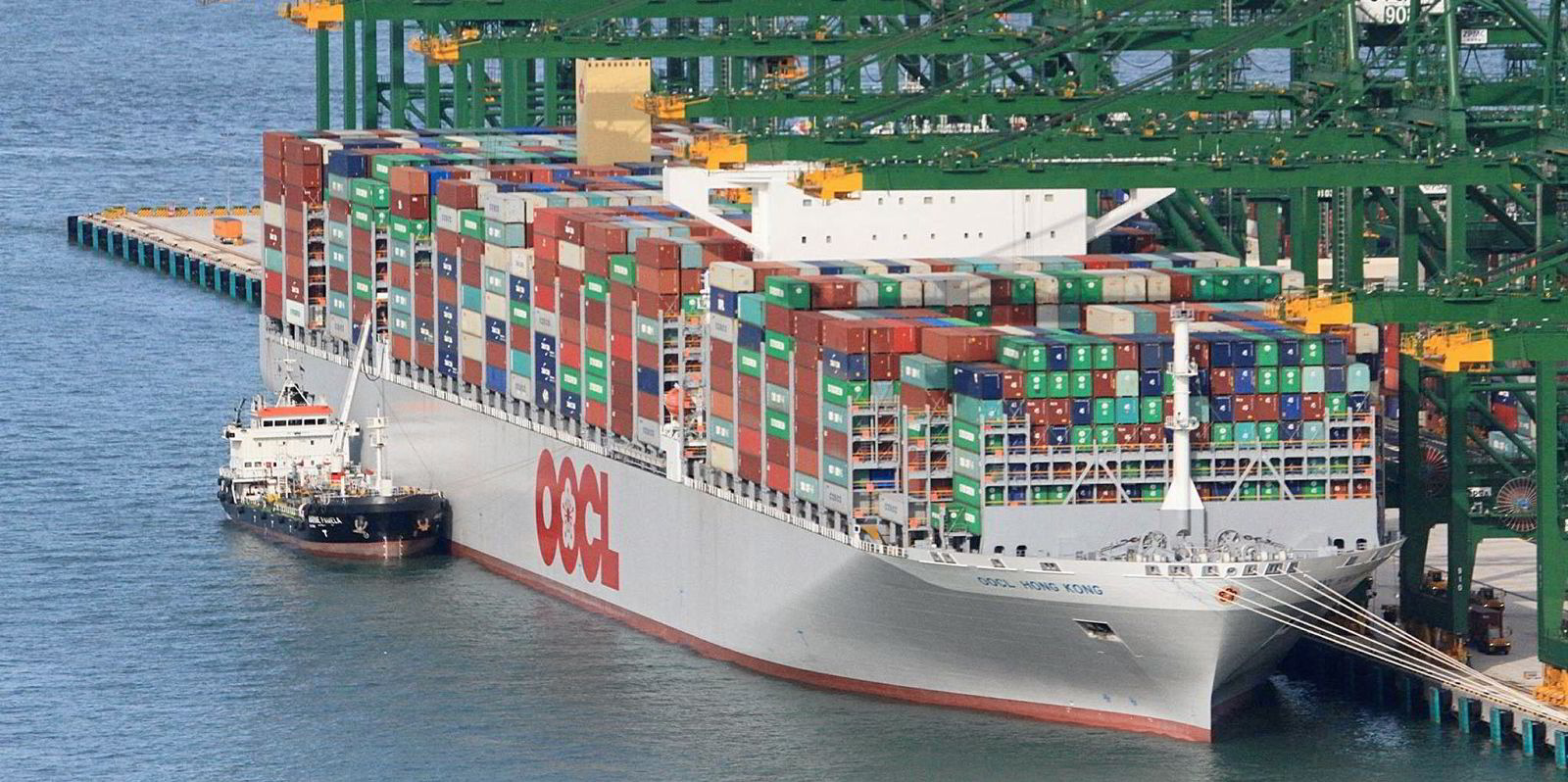Hong Kong’s Orient Overseas International (OOIL) still has more financial firepower to reward shareholders, says a regional analyst.
The parent of Orient Overseas Container Line (OOCL) recently declared an interim dividend of $0.86 per share, including an ordinary dividend of $0.69 and a special dividend of $0.17.
The total dividend represented a 50% payout ratio and although this payout ratio was still higher than the company’s stated 40% payout ratio in its dividend policy, it was lower than the 70% interim dividend payout ratio last year.
“As of the end of the first half of 2023, OOIL had a significant net cash position of $6.2bn, equivalent to 65% of the company’s current market cap,” said UOB Kay Hian analyst Roy Chen.
“Excluding $600m earmarked for interim dividend payment, OOIL would still have $5.6bn net cash on its balance sheet, more than sufficient to cover its outstanding capital commitment of about $3.8bn, which will be incurred over the next three to four years.”
OOCL recently took delivery of the OOCL Felixstowe, the fourth of 12 24,188-teu containerships newbuildings from China’s Dalian COSCO KHI Ship Engineering Co (DACKS) shipyard.
Chen said given OOIL’s strong net cash position, he estimates that OOCL can “easily pay out another $2bn in spare cash” while still having a sufficient balance to provide for its capital commitments in the next three to four years.
Early last week, OOIL posted an 80% year-on-year decline in 2023 first-half profit to $1.1bn versus the $5.6bn seen a year earlier.
The shipowner looked to play down the positive market sentiment of recent weeks saying that the conflicting positive and negative signals that have made forecasting so difficult in the past 12 to 24 months remain firmly in place.
“Despite the recent stabilisation of freight rates, management remains cautious about the outlook, noting the risks associated with the impact of inflation and higher interest rates on consumer spending,” said Chen.
“In addition, we believe that the container shipping sector would face an overcapacity situation in the next two years with deliveries of new container vessels expected to reach record levels in 2023-24, with the gross capacity of the new vessels forming 8.2%/9% of the sector’s existing capacity.
“Although we agree with management that it is difficult to come up with accurate estimates about the net/effective capacity increase for the sector, which is affected by old vessel scrapping as well as possible speed reductions of vessels due to new environmental regulation requirements.
“Our base case is that the outlook for the container shipping sector is likely to remain subdued in the near- to medium-term,” he added.
Chen said that while he thinks it makes sense for OOIL to keep more cash at this juncture in view of the uncertain outlook in the near-to-medium term, he remains hopeful for OOIL to “unlock more shareholder value via dividends in the future”.





